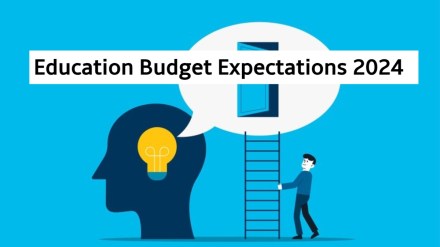India’s aspiration to achieve ‘Viksit Bharat’ is hindered by a significant gap in IQ levels compared to other leading nations. With an average IQ of 77, ranking 96th globally, India faces stiff competition from countries like China, which boasts an IQ of 104 and ranks 5th, experts told Financial Express Education.
Bridging this intellectual gap is imperative, particularly in an era where global growth hinges on pioneering technologies. Therefore, enhancing India’s general IQ level is crucial, and this necessitates a substantial boost to the education sector in the upcoming budget,” V.P Singh, Program Director – PGDM, Professor of Managerial Economics and Statistics, Great Lakes Institute of Management, Gurgaon, said.
Calls for expanded scholarships and CSR funding
A robust educational framework is essential not only to raise the general IQ but also to enhance the Artificial Intelligence (AI) quotient. The global economy is increasingly becoming knowledge-driven and investing in education will create a ripple effect, fostering growth across all sectors. “Scholarships and financial aid should be expanded to make education accessible to all, ensuring that talent is nurtured irrespective of socioeconomic background. Moreover, partnerships with global educational institutions and tech firms can bring in expertise,” Singh added.
Singh suggest that corporations should allocate a portion of their annual Corporate Social Responsibility (CSR) funds towards developing research infrastructure, establishing incubation facilities and providing research funding at both public and private universities. This initiative, with a recommended cap of Rs one crore per university, aims to strengthen India’s research ecosystem and promote academic excellence.
Skill development funding in budget proposals
“Moreover, implementing uniform taxation norms for both home-grown institutions and foreign institutions establishing campuses in India can create a level playing field. This would not only attract global educational players to the country but also ensure fair competition and standards across the sector. Such regulatory harmonisation can foster a more robust and diverse educational landscape,” Vishal Khurma, Chief Executive Officer (CEO), Woxsen University Hyderabad, said.
Skill development programs, particularly those run by universities, require substantial support. The budget can provide grants and subsidies to scale up these initiatives, focusing on high school dropouts and diploma students, as per the experts. “This approach addresses the crucial need for vocational training and skill enhancement, preparing a workforce that is well-equipped for the demands of a dynamic job market,” Khurma added.
The last few years have seen a reversal of the brain drain as students increasingly choose to contribute their talents and expertise to our nation’s growth story. “To further boost this trend, the government should consider introducing incentives, such as tax breaks on education loans or scholarships for high-achieving students, for those pursuing higher education within India. This will not only make quality education more accessible but also solidify India’s standing as a preferred destination for higher learning,” says Siddharth Shahani, Executive President of Atlas SkillTech University.
